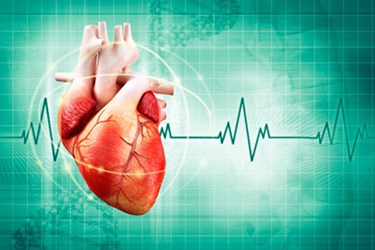Vagus Nerve Implants Yield Mixed Results For Boston Scientific, Cyberonics
By Jof Enriquez,
Follow me on Twitter @jofenriq

A heart failure study using vagus nerve stimulation (VNS) devices by Cyberonics Inc. showed modest improvement of heart function, while a separate but similar trial by Boston Scientific did not demonstrate any benefit.
The findings of the Cyberonics-backed ANTHEM-HF (Autonomic Neural Regulation Therapy to Enhance Myocardial Function in Heart Failure) trial, presented recently during the annual meeting of the European Society of Cardiology, revealed that "left ventricular ejection fraction (LVEF) increased from 32.4% to 37.2% with the stimulation device (VNS Therapy System) after 6 months" for 60 patients, according to Med Page Today.
"I think, at six months, that (4.5 percent improvement) is a very impressive achievement," study leader Inder Anand from the University of Minnesota, said in a press conference, Reuters reported. Anand said one patient suffered a stroke during implantation of the vagus nerve stimulator and died three days later. He suggested the devices may be contraindicated for people with severely blocked arteries due to danger of dislodging clots that can lead to strokes.
The ANTHEM-HF study showed no difference in benefits between left and right side implantation. The right side vagus nerve is traditionally believed to provide more of a baroreceptor impact than the left side, but the ANTHEM-HF study indicated that the left side may be equally viable, and even easier to access, Kenneth Dickstein, MD, professor of medicine at the University of Bergen, Norway, told Med Page Today.
"There is attractiveness to using the left side because that is where we put most of our devices, like pacemakers and defibrillators," Mariell Jessup, MD, professor of medicine at the University of Pennsylvania in Philadelphia and immediate past president of the American Heart Association, told Med Page Today. "In theory, if you were implanting a device, you could be implanting the vagus nerve stimulator and, I suppose, you could put the generators in one single pocket."
Cyberonics already uses its FDA-approved VNS Therapy System to treat epilepsy and treatment-resistant depression. Using the same devices to stimulate the vagus nerve to improve heart function is one of the next targets for therapy.
"Heart failure remains a difficult and challenging syndrome throughout the world, despite optimal medical management," Dan Moore, president and CEO of Cyberonics, said in a statement. "We are pleased that patients with chronic heart failure participating in the ANTHEM-HF study experienced meaningful improvements and benefited from our proven VNS technology platform that has been prescribed and implanted more than 100,000 times for the treatment of drug-resistant epilepsy over the past 20 years. Based on the ANTHEM-HF study results, we remain committed to completing the development and commercial introduction of our new VITARIA System for ART."
In contrast to the Cyberonics ANTHEM-HF study of patients across India, a larger, randomized trial conducted by Boston Scientific did not demonstrate improvement in heart function for heart failure patients in Europe.
"There is robust pre-clinical data showing the benefit of [vagus nerve stimulation], but the NECTAR-HF trial failed to demonstrate a successful clinical translation of this protocol," Faiez Zannad, an investigator in the trial at l'Institut Lorrain du Coeur et des Vaisseaux Louis Mathieu, in Vandoeuvre-lès-Nancy, France, said in a press release cited by IEEE Spectrum.
The NECTAR-HF (NEural Cardiac TherApy foR Heart Failure) study had patients implanted with VNS devices on their right vagus nerve. Two-thirds had the stimulators turned on for six months, while one-third acted as controls. The trial failed to show the anticipated benefits in "cardiac function, as well as on cardiac biomarkers, exercise capacity, and quality of life," according to a European Society of Cardiology press release.
Other researchers noticed both studies' shortcomings. The smaller Cyberonics study is deemed unreliable because it did not utilize any controls. Boston Scientific's trial may have yielded poor results because six months is too short for the test period, the currents delivered were too low, or because the patients were already managed optimally using standard treatment protocols for heart failure, according to IEEE Spectrum.
